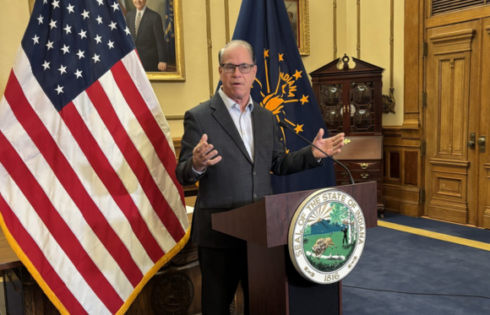Of all college grads since 2006, only a little over half are working full time. And over the course of their lives, only a fifth of young people today expect to do better than their parents. Eliot Blair Smith writes for Bloomberg, saying that the American Dream–the idea that each generation will do better than its parents–has all but disappeared:
After being dismissed from her job as a Midtown Manhattan securities attorney in October 2009, Christina Tretter-Herriger hitched a used horse trailer to her Dodge Ram pickup and drove 1,628 miles to Texas.
The 32-year-old lawyer sold skin-care products in Houston before finding work as the assistant general counsel of a futures-trading firm where an irate customer punctuated a recorded voice-mail message with gunfire.
“No one was left with the impression that he just happened to be phoning from a sporting clays range,” she says.
Eighteen months and two busted jobs later, the daughter of a retired physician and a former editor at Vogue circled back to upstate New York and hunkered down at a small legal office that pays about one-quarter of her former $165,000 salary.
Generation Y professionals entering the workforce are finding careers that once were gateways to high pay and upwardly mobile lives turning into detours and dead ends. Average incomes for individuals ages 25 to 34 have fallen 8 percent, double the adult population’s total drop, since the recession began in December 2007. Their unemployment rate remains stuck one-half to 1 percentage point above the national figure…
“This generation will be permanently depressed and will be on a lower path of income for probably all of their life — and at least the next 10 years,” says Rutgers professor Cliff Zukin, a senior research fellow at the university’s John J. Heldrich Center for Workforce Development. Professionals who start out in jobs other than their first choice tend to stay on the alternative path, earning less than they would have otherwise while becoming less likely to start over again later in preferred fields, Zukin says.
Michael Greenstone, who was chief economist at the White House Council of Economic Advisers in 2009 and 2010, says the shift to a downwardly mobile society may be lasting. “Children are not earning as much as their parents, and I think we’re laying the seeds for that to continue into the future,” he says.
Read the full story here.
Click here to Like The College Fix on Facebook.
Follow Nathan on Twitter @NathanHarden





Please join the conversation about our stories on Facebook, Twitter, Instagram, Reddit, MeWe, Rumble, Gab, Minds and Gettr.